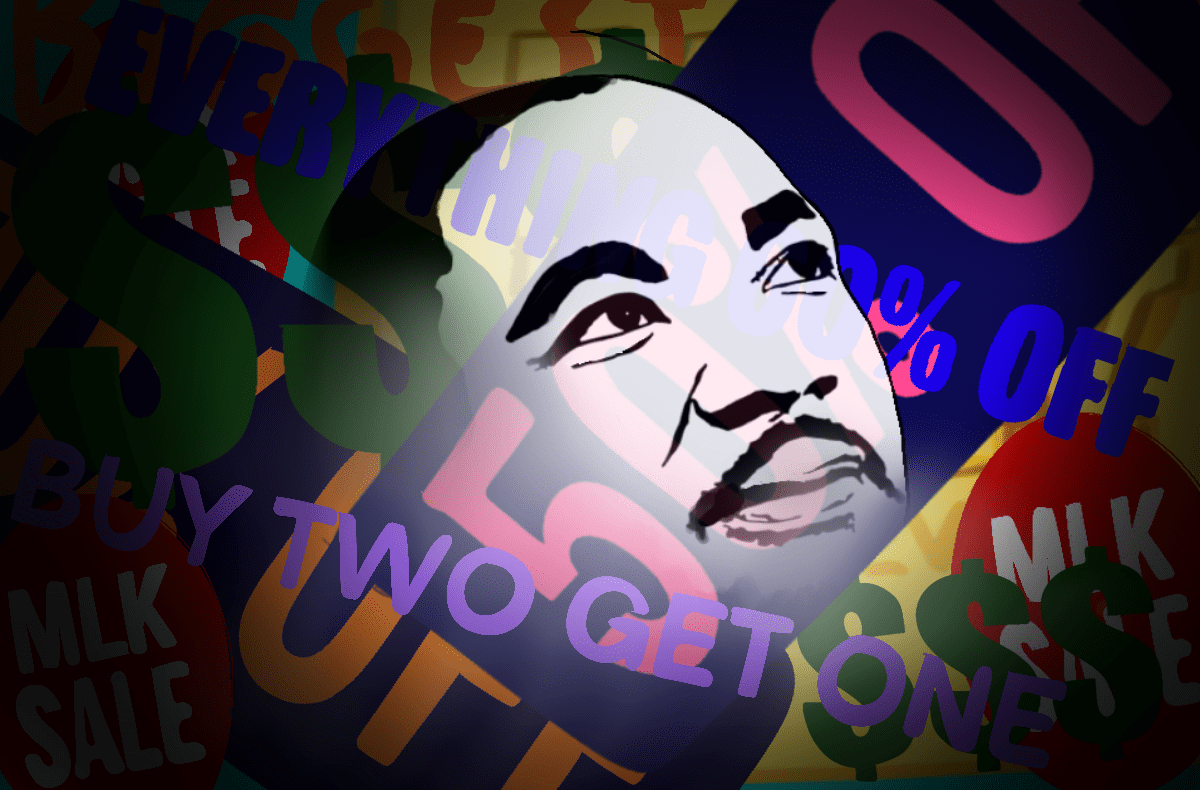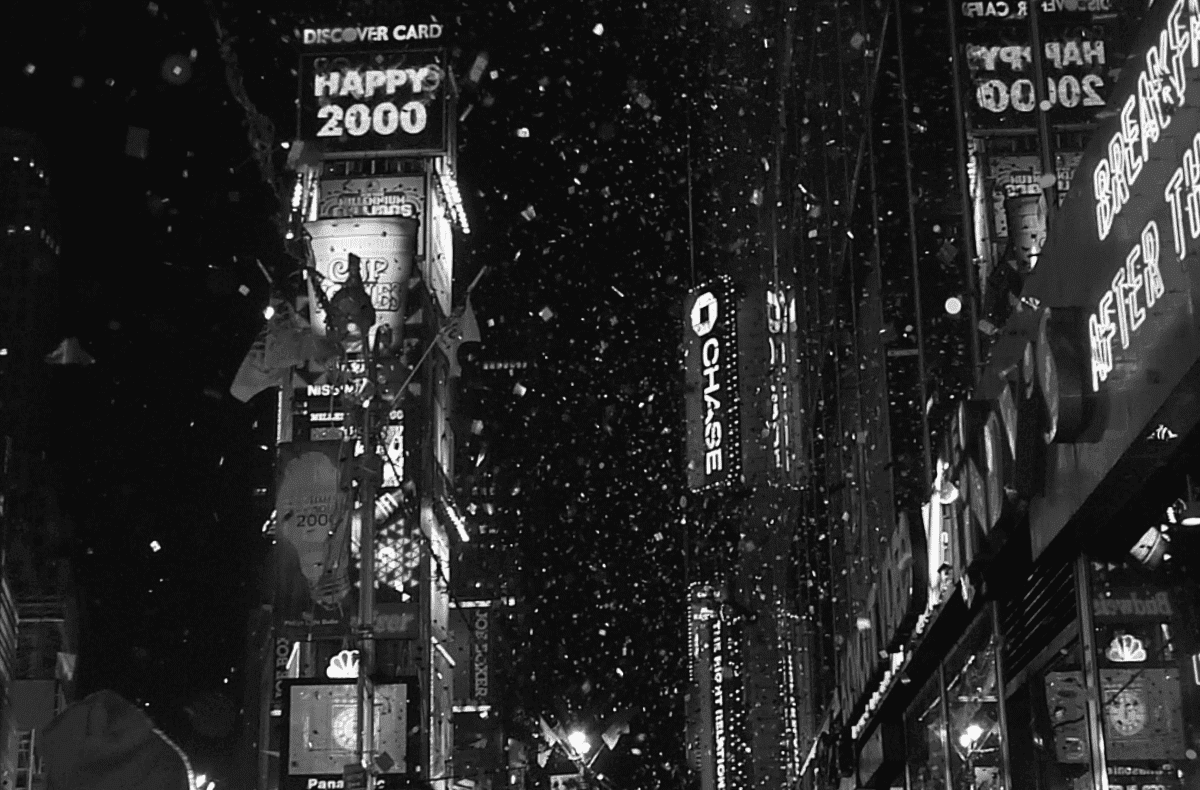
It was the middle of a hot July. I had been auditioning for about eight months. The only job I booked was a non-speaking role… a guy sitting at a bar in a student film entitled Timothy Poindexter. I didn’t even know what the thing was about. All I knew was I got served a stale cup of coffee and a week-old bagel for lunch. And when Timothy Poindexter, a hangdog-faced guy about five-foot-two with a crewcut and wire-rimmed glasses walked into the room, we extras had to turn around, point at him and laugh.
Those eight months were my introduction to show business. I was miserable. And broke. And lonely.
I was wallowing in self-pity when I opened up that week’s Backstage Magazine. A full page ad blared: IS FEAR STOPPING YOUR CAREER? with an attractive raven-haired woman’s picture in the middle of the page.
“Yes!” I thought. “Fear and not knowing what the hell to do!” I was in.
The room was hot and dank. About thirty sweaty, desperate actors sat in hard wooden chairs in a musty Carnegie Hall studio, packed together like chickens in a Perdue farm.
Sharon Slateman—as I’ll call her here—was the teacher in the ad, and looked nothing like her picture. The combination of ghoulish white foundation, bright red lipstick, heavy eyeliner and Botox made her face seem frozen in an expression of constant awe. In her mid-fifties, she dressed like she had just graduated from cheerleading school, wearing a tight black skirt, her hair pulled back in a ballet dancer bun.
“Dave, it’s your turn to work.”
Dave, a guy in his late twenties with a thick Southern accent, got up in the middle of the sweaty, cramped room.
“FUCK FUCK FUCK YOU!! FUCK YOU DAD, FUCK ALL OF YOU, I HATE YOU AND I DON’T CARE WHAT YOU THINK, YOU FUCKING FUCK!” he said, slamming his booted foot into the floor. What the hell is going on here? I wondered.
“Go into your monologue!” Sharon declared.
Dave plunged into David Mamet’s American Buffalo, his face turning nine shades of purple. “FUCKIN’ RUTHIE! FUCKIN’ RUTHIE! FUCKIN’ RUTHIE FUCKIN’ RUTHIE FUCKIN’ RUTHIE!” Spit flew out of his mouth.
Sharon beamed. “That was amazing work! You’re working on your relationship with your father and it’s paying off!” Then she pointed at me. “Time to introduce yourself.”
I shuffled to the center of the room, bewildered. I was clearly the only new student. I started performing a monologue from Johnny No-Trump. I was 23 and looked about 12, so I could easily play a teenager.
Mom, I never liked myself. Not how I look or dress or sound….
She stopped me. “Skip around the room while you do the monologue.”
I was baffled, but started skipping around as if I were six years old with a basket of lollipops.
I picked up a book of poetry. It spoke to me! Like it was written for me!
What I did had absolutely nothing to do with the play or the way it was written. I felt absurd.
“That was better! See? You know what you did first? You acted. That’s what you do. You act.”
This pissed me off. I had studied acting for two years with an excellent teacher. I didn’t need to be demeaned like this in front of thirty strangers. All I wanted to learn was how to advance my career. I sat down, utterly humiliated.
The class was a hot and sweaty four hours of classmates sharing horrific childhood traumas and doing other incomprehensible “acting” exercises. The worse their story was about their parents, the more Sharon seemed to praise them. I, however, loved my parents. In spite of their divorce, they’d always supported me, so I felt pretty well-adjusted. I went home to my tiny studio, my mind spinning.
They’re all so miserable. How can I compare? I’m not traumatized enough! How am I ever gonna work as an actor? I was desperate for direction—something telling me I was in the right industry, some sort of encouragement. Being young, vulnerable and having no answers, I ponied up $175 a month to learn what was holding me back.
Next Monday’s class started with Bob, the six-foot-two, balding class star, performing a scene about an abusive redneck trailer trash husband assaulting his wife.
It was awful.
There are thousands of bad movies. Arnold: Stella Stevens marries her lover after he’s dead. They Saved Hitler’s Brain: Hitler’s disembodied head plans a new Third Reich from South America. Dr. Giggles: A madman believes he’s a doctor, goes to his hometown, murders people and falls in love with a teenage girl with a heart condition.
Bob’s scene made these look like Citizen Kane.
After the scene, half of the women in class were in tears.
“Bob, that was brilliant.”
“Bob, you are destined to become a name in the industry.”
Bob looked uncomfortable.
“Take it in,” said Sharon.
Month after month, I paid $175 for four to five hours of excruciating emotional spewing of whatever pain each actor could dig up—with one bathroom break. I learned nothing about being a working actor, and way too many intimate details of my classmates’ lives that I’d rather not have known. A statuesque blonde confessed to seducing her father as a teenager. A man in his mid-thirties was “separating from his parents.” Birdie, a neurotic wreck, once got up, held her arms out straight to the wall and wailed. No words came out of her mouth, only primal howls as tears streamed down her cheeks.
“Wahoooooooo!!! WAHHHHHHHH! AROOOOOOAROOOOAROOOO!!!”
I’d leave class feeling sick to my stomach. But my craving for positive reinforcement kept me coming back—even though I was starting to realize this was some sort of a strange cult. At one point, Sharon recommended me to a therapist, and was disappointed when I said I already had one. I then found out that half the class was in group therapy—with the same therapist. Incestuous and sick doesn’t begin to cover it.
One Monday, I was performing an intimate, intense scene with the woman who’d seduced her father. We lay in a makeshift bed, half naked. My shirt was off, exposing my skinny chest.
I shouted at the wall, thinking it would get me some kind of affirmation: “FUCK YOU! FUCK YOU! FUCK YOU!”
“Stop,” said Sharon. “Focus on your body.”
I did. A deep, vulnerable feeling came through me.
“Focus on that feeling.”
The next thing I knew, every ounce of pain about my parents’ divorce coursed through me. I crumpled in half, sobbing tearless sobs. I felt as if I had been punched twenty times in the stomach. I couldn’t breathe.
“Now go into the scene.”
We did.
“Now THAT was good work,” she said.
Whether it was good work or not, my mind was empty. I felt as if I had taken six hits of LSD, but without any of the fun parts. I sat down next to Dave.
“If ya cain’t do stuff like that in real lahf, ya won’t be able to dew it awn stayje,” he drawled.
As dazed as I was, I still knew damn well I’d never have to shoot heroin to act in A Hatful of Rain or run around with a crown of thorns on my head, barking at the moon to play King Lear.
I blinked rapidly, trying to shake off the emotions still riding through me. Then I looked around the class, taking in this group of actors and had a shocking revelation.
None of them worked.
“Once I work through my relationship with my father, I’ll be able to audition.”
“When I get through my childhood trauma, I will get out there and audition.”
“My mother never gave me any approval. And I speak five different languages. But I don’t audition. I’m just…”
Sharon Slateman was using vulnerable people’s damages and wounds to keep them trapped and gain a permanent annuity. This place was dangerous. The next Monday, I announced I was leaving. Exiting that Carnegie Hall studio for the last time, I breathed an enormous sigh of relief.
Over the next few years, after hundreds of auditions, I began to work regularly. I booked speaking roles on Guiding Light, One Life to Live and Another World. I had a co-starring role on an ABC Afterschool Special, where I played a rock star. A film I was in aired on A&E.
All it took was time.
Fear was never stopping my career. It was a combination of patience, hard work and luck.
Walking through Midtown ten years later, I ran into George, the people pleaser with mother issues who could speak five languages.
He reported that he was now in Sharon’s “master class,” his face lighting up like a Christmas tree.
“Oh, good!,” I said as I smiled, nodding uncomfortably. Images of that nightmarish room flooded my mind.
We had a short moment of eye contact. I could see his yearning for acceptance and understanding. I wished him goodbye and good luck.
As he walked away, I sat on a nearby bench and mused on how easy it is to prey on vulnerable people—and make a lot of money doing so. And no one is more vulnerable than an aspiring actor.
I hope George got to audition.



